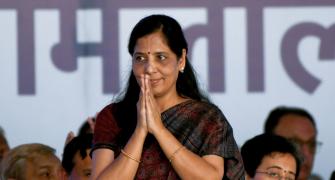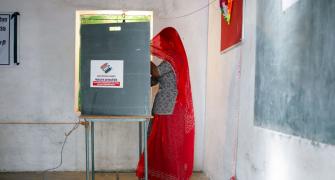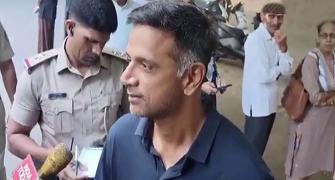What are the common features of a pass-off and a counterfeit product? Both are bogus.
Let's make things simple: counterfeiting is the art of duplication where even the original manufacturer won't be able to distinguish between a genuine and a fake product.
A pass-off product, on the other hand, is one which comes with minor changes from the original one. An extra alphabet or the absence of a G in your Parle-G biscuit are some examples.
"Lack of consumer awareness and advancement of technology are the major factors which encourage counterfeiting in India. Lax enforcement laws make things easy for counterfeiters," said Sushil Jiwarajka, chairman, western regional council, the Federation of Indian Chambers of Commerce and Industry.
According to an AC Neilsen Ficci study, the fast moving consumer goods sector loses Rs 2,600 crore (Rs 26 billion) a year owing to counterfeiting, while the government loses Rs 900 crore (Rs 9 billion) a year in the process. Also, Rs 370 crore (Rs 3.70 billion) worth spurious drugs are sold in the country.
Around 10 per cent of the major soft drinks sold in India are fakes, while 10-30 per cent of cosmetics, toiletries and packaged foods are bogus, the study adds.
"Counterfeiting is not just about making a replica of a product or a company losing money or its brand reputation. Many a time it is used as a tool to legalise funds needed for anti-social activities," Jiwarajka said.
"Around 60-70 per cent of the counterfeit products in India are manufactured in and around Delhi. The proximity to the boarder makes northern states the hub of such activities. On the financing side, Mumbai and Gujarat top the list," says Zaheer Khan, director, Enforcers of Intellectual Property Rights (India) Ltd, an anti-counterfeiting services company.
According to EIPR, the first step in protecting a brand for the company is recognising that brand theft does and can exist. EIPR helps brand owners develop technology-neutral solutions to meet their requirements.
These steps initially involve selling a brand security plan to senior management, creating a team within the organisation to assess the situation, defining the programme's objective, finding the right security solution and deciding what to do.
"EIPR does all the research and ground work to identify spurious goods manufacturers and their point of sales. After investigations, we lodge a complaint with the local police. Together with the police, a team of EIPR officials conduct raids to nab counterfeiters," says Khan.
The Mumbai-headquartered EIPR has branches in Delhi, Kolkata, Chennai and Ahmedabad.
EIPR has a nationwide network of trained and skilled staff and also has strategic tie-ups with enforcement agencies in Asian countries.
The company also provides governments, businesses and individuals with information, analysis, training, advice and products to mitigate risks associated with white-collar crimes, misuse of property and intrusions to computer networks.
The software sector is an area were everybody loves to be a pirate. According to a survey by the National Association of Software and Service Companies (Nasscom), losses owing to software piracy in India were Rs 1,100 crore (Rs 11 billion) in 2000-01, which has increased to Rs 1,500 crore (Rs 15 billion) in 2002-03.
However, there is a decline in the rate of piracy from 89 per cent in 1993 to 64 per cent in 2002-03.
Nasscom, to curb piracy, has implemented various measures. This include active litigation against companies and individuals engaged in piracy and creating public awareness through educational programmes, advertisements and seminars.
Nasscom, in alliance with the Business Software Alliance, a global organisation with copyright enforcement initiative in 65 countries, has also launched India's first toll-free anti-piracy hotline. At 1-600-334455, cases of piracy can be reported to Nasscom from any part of the country.
The association has also unveiled a 'rewards campaign', under which people can call the toll-free piracy hotline and report cases of piracy.
A maximum amount of Rs 50,000 will be awarded to the caller on furnishing of suitable evidence. This campaign is only applicable against corporates which are using pirated software.
Another industry body which has initiated steps against counterfeiting is Ficci.
The federation, under its brand protection committee, is planning to set up a website which will work as a platform for various industries to share information.
Also in the pipeline is a helpline which will help companies and consumers report cases of counterfeiting and intellectual property rights violations.
The Ficci BPC is a member of the Global Anti-Counterfeiting Group, an international forum to track the source of counterfeiting activities and take action on them.
"Today, one cannot combat counterfeiting on an individual basis. We are working on a platform for sharing information on a global level," Jiwarajka added.







